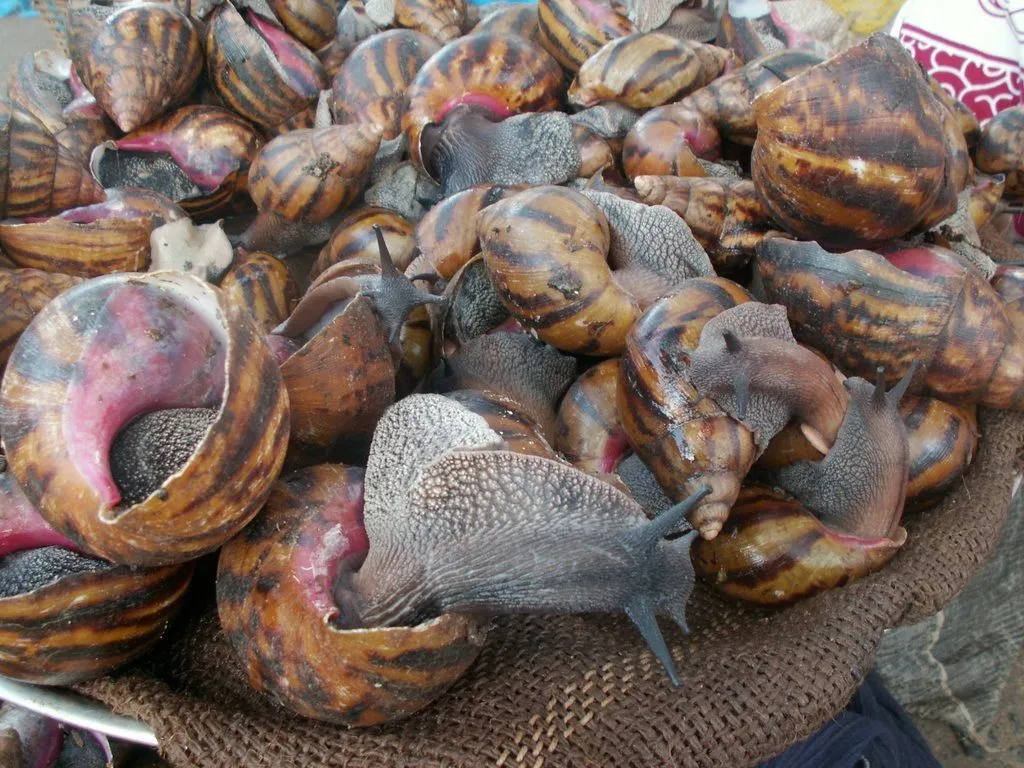Once dismissed as subsistence work, snail farming, also known as heliciculture, is now one of Nigeria’s fastest-growing small-scale agribusinesses.
From Lagos to Enugu and Oyo, farmers are discovering that the humble snail, rich in protein and micronutrients, may be one of Nigeria’s most overlooked farming assets.
“Snail farming is still what I call a hidden market,” remarks AbdulRazak Sadiq, an agricultural economist. “Most people don’t even know it exists commercially, and those who do often think it’s only for small backyard sales. Yet, it’s one of the most profitable and climate-smart ventures out there.”
A dark horse
Across southern and central Nigeria, entrepreneurs are scaling up heliciculture with surprisingly modest inputs. Start-up costs are low compared with poultry or fish. Pens can be built from bamboo, blocks, or local materials, while snails feed on household scraps, fruits, and vegetables.
That makes snail farming especially attractive to women, youth, and urban households with limited land. A well-managed pen of just 200 snails can double within months under the right humidity, feeding, and temperature conditions.
Sadiq explains, “It’s still informal because it lacks proper structure or large-scale investment. Most snail farmers are women or traders who rear and sell from backyard setups. But once there’s awareness and investment, it can easily grow into a structured, export-ready industry.”
This growing interest is driven by both economics and health consciousness. Snail meat—rich in iron, calcium, and amino acids, yet low in cholesterol—has gained a loyal following among pregnant women and health-conscious consumers.
Nutritionists say it’s particularly beneficial for people managing anaemia or seeking lean protein alternatives to red meat.
Export gold
Global demand for edible snails (escargot) is expanding, propelled by restaurants, pharmaceutical firms and cosmetic companies that use snail mucin (slime) in skincare products.
Market researchers estimate the global snail market size, valued at USD 647.4 million in 2024, could nearly double to USD 1.4 billion by 2034.
In Nigeria, local demand already far outpaces formal supply. The country consumes hundreds of tonnes of snails annually, yet most are still harvested from the wild—putting pressure on wild populations, especially during the dry season when snails are scarce.
Snails now sell at premium prices, signalling that demand is growing faster than structured production can meet it.
Innovations driving snail farming
Practical innovations are emerging that could change the game for farmers. Modern snail pens and greenhouses, designed to control humidity and protect snails against predators, have improved survival and growth rates.
Some NGOs and agricultural extension centres have begun training smallholders on pen construction, breeding cycles and feed formulation.
“Snail farming needs practical innovations that make it easier, more efficient, and more attractive to both smallholders and investors,” says Sadiq.
Similar models are thriving elsewhere in West Africa. In Ghana and Côte d’Ivoire, government-backed cooperatives provide training, market linkages, and quality certification for snail farmers, boosting exports to Europe and Asia.
Local trade reports and blogs note that snail meat becomes “expensive” during off-seasons due to supply shortages and slow growth rates.
In Lagos’ markets, for example, snails sell for ₦500-₦600 each, meaning that a few hundred snails can yield a modest but steady income. Making profit, however, depends on survival rates, feed availability and farmer expertise.
Beyond food, snail mucin has opened a new export channel. Cosmetic companies now buy raw mucin from African producers, creating a high-value niche market that could rival traditional livestock sectors.
Myths and finance
For all its promise, snail farming faces major hurdles. Access to credit remains one of the biggest.
Commercial banks rarely finance small ventures like snail, viewing them as high risk. Without affordable loans, most farmers rely on savings or informal borrowing to buy breeding stock and build pens.
Technical training is another gap—many beginners start through trial and error, leading to high mortality rates and financial losses.
“The struggles go beyond snail farming,” notes Sadiq, “they reflect agriculture generally in Nigeria. If the government supports snail farmers with finance, research, and market promotion, this industry can move from informal to a viable agribusiness that creates jobs and supports food security.”
Cultural myths also hinder growth. In parts of southern Nigeria, pregnant women are forbidden from eating snails due to beliefs that they cause excessive saliva and sluggishness in babies.
Experts say public health education and certified processing standards could dispel such myths—just as poultry overcame similar stigmas decades ago.
Women dominate Nigeria’s snail farming chain—from production and processing to sales. The business’s low capital requirement and flexible nature make it ideal for women juggling household responsibilities, explains Sadiq.
Initiatives such as the Lagos Agripreneurship Programme have begun including snail farming in their training modules, recognising its potential to boost income and nutrition.
Building a viable industry
For Nigeria to position itself competitively in the global snail market, experts stress the need for stronger policy alignment and private-sector investment.
“The way forward is by supporting existing farmers with finance and research. When production increases, export potentials follow naturally,” says Sadiq.
Scaling up training and research will be key. Similarly, market aggregation and certification programmes would connect farmers with supermarkets, hotels, and exporters, ensuring product quality and steady demand.
Following the right steps can guarantee Nigeria’s next agricultural success story.
Summary not available at this time.






